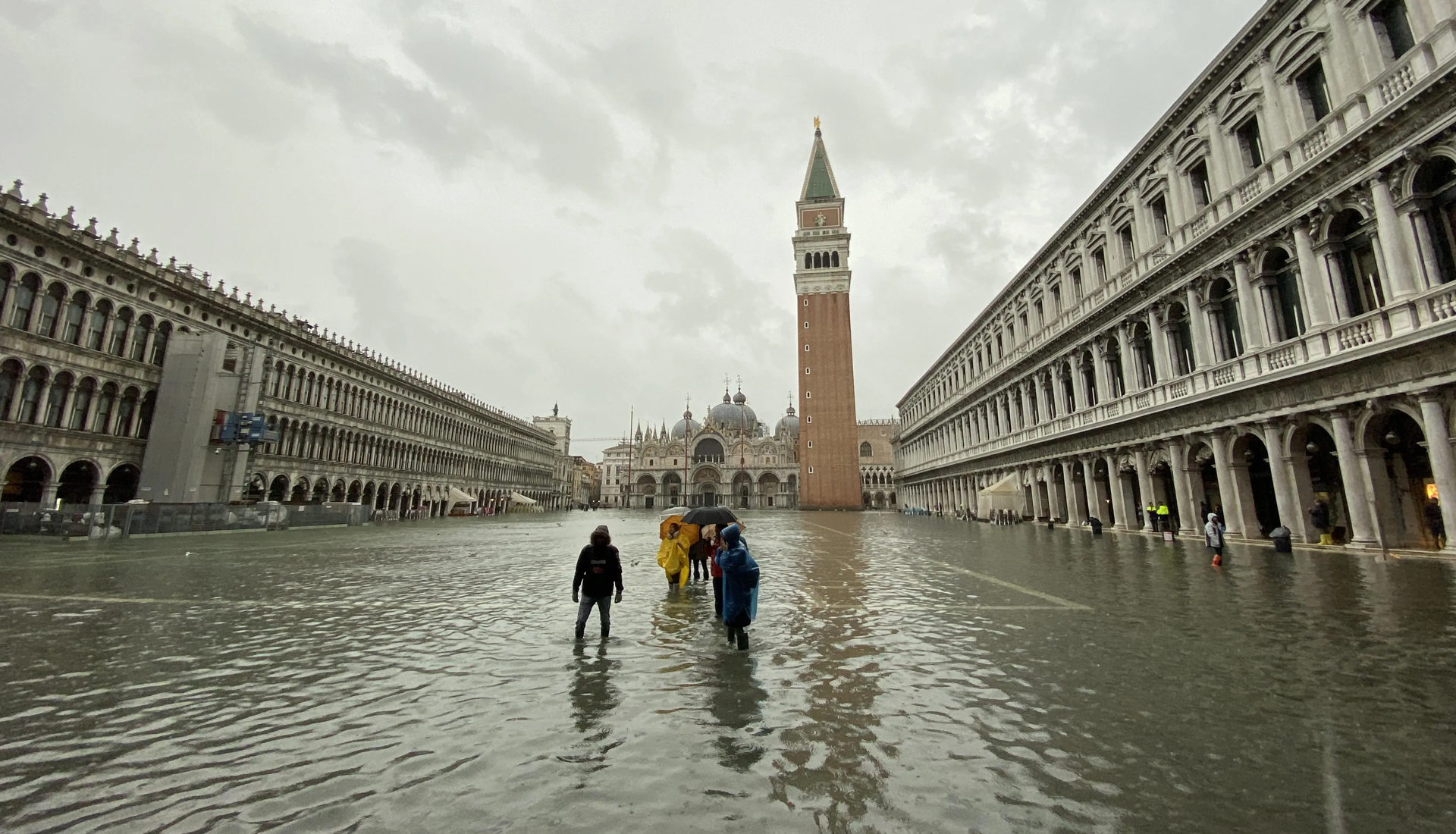As record breaking floods and fires imperil many areas on the globe, politicians can no longer in good conscience ignore climate change. So, it’s a good thing some of them don’t have consciences.
Venice, a Unesco world heritage site, has been declared a state of emergency as it experiences its worst series of high tides since 1872.
Whilst in most places rising tides generally herald that it’s time to back up the beach kit and head home, for the maritime city of Venice a few extra inches of water can be catastrophic. For the past few weeks Venetians have been battling the worst flooding in nearly 150 years, and they’ve just this morning (18th Nov) been hit with a third major incident of encroaching tides.




St Mark’s Square, the city’s main quarter and a central tourist attraction, has been officially closed. ‘Maximum attention for today’s tide’ tweeted the city’s mayor Luigi Brugnaro, who has stated that saltwater damage to the city’s restaurants, shops, galleries, and homes has so far not only promised reconstruction costs in excess of €1bn, but threatens the city’s artworks, literature, and countless cultural artefacts of value. ‘These are the effects of climate change’ he continues in a Twitter post.
Situazione drammatica pic.twitter.com/gS63ZK2j3Q
— Luigi Brugnaro (@LuigiBrugnaro) November 12, 2019
All this comes, ironically, after the Veneto region (which includes Venice) rejected a plan to combat the climate crisis in the 2020 budget. Politicians from the council’s majority right-wing parties – The League, Brothers of Italy, and Forza Italia – voted down amendments proposed by the centre-left democratic party reportedly minutes before the council’s chambers in the Grand Canal, Venice, were flooded. These amendments included measures to find renewable energy sources, replace diesel buses, and reduce plastic use in retail and supermarkets.
Andrea Zanoni, the Democratic Party’s deputy chairman of the council’s environment committee, shared a photo of the flooded offices on Facebook:






















